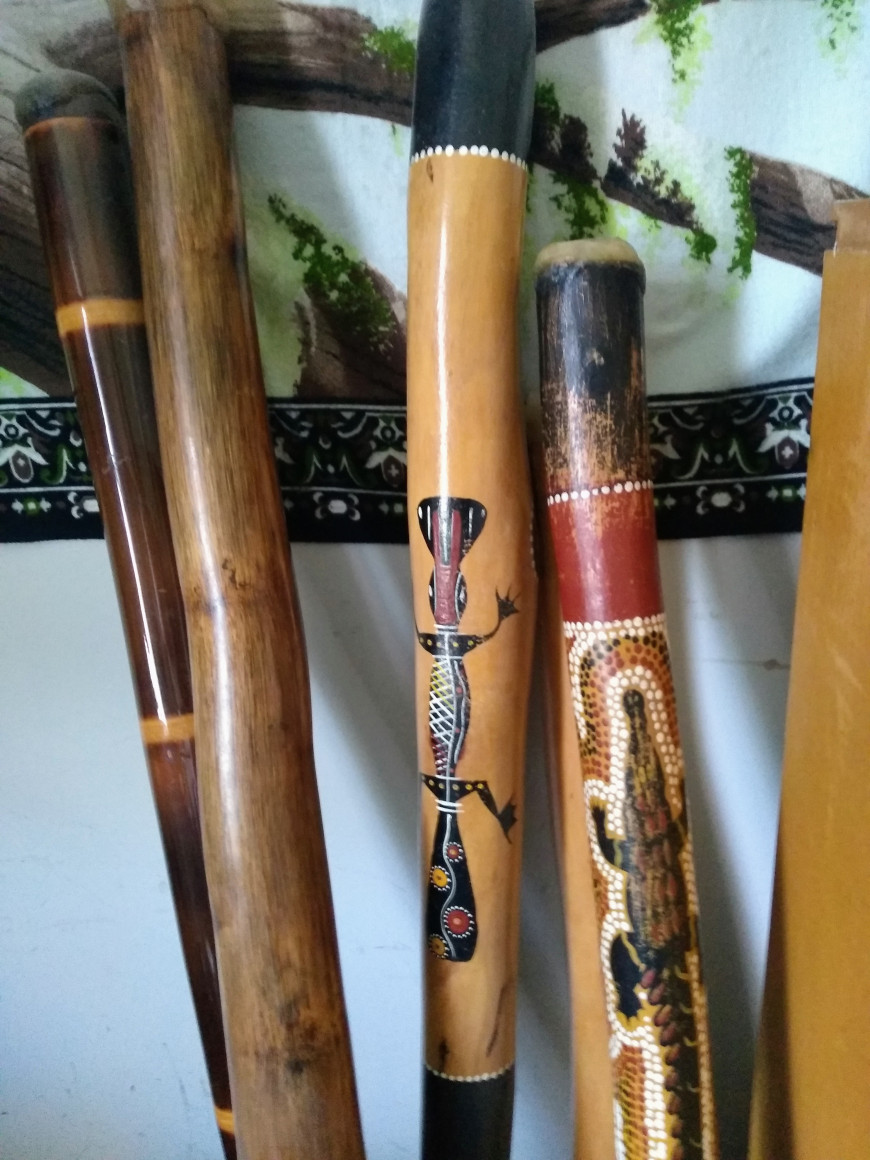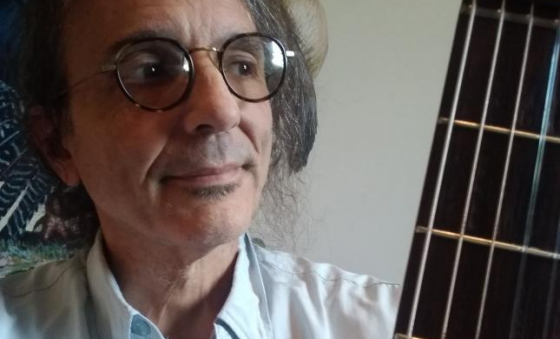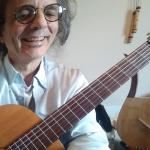A Case For Learning To Play The Didgeridoo

Playing the didgeridoo has opened doors to places, events, and people I may never have found any other way.
So, why invest your time and resources in purchasing and learning to play a didgeridoo?
Twenty years ago I was asking myself the same question. I have been a guitarist most of my life, however in high school I played brass instruments also. Around age 40, I got the idea that it would be great to get back into the wind instruments, so on a lark I bought a cornet at a pawn shop.
There I was, about to rekindle my relationship with brass instruments. I raised the horn to my lips and played a nice loud, blaring note. I thought to myself, "Boy am I outta' shape for this.” Enter the didgeridoo, which I had always thought of as a silly instrument. I had seen them in the drum and percussion section of the local music store, but never took them seriously. And then one day it dawned on me: here's a way to build up my wind strength, so I bought one. I became hooked on the didgeridoo, sold the cornet and never looked back. It was a happy accident of sorts, and I don't regret it.
In addition to building up wind strength necessary for playing other instruments, there are some surprising health benefits to playing the didgeridoo. The didgeridoo is a very physical instrument. While playing it you really involve your entire self, engaging the lungs, diaphragm, larynx and sinuses. There is evidence to suggest that playing the didgeridoo not only helps to oxygenate the body, but may also help reduce snoring in individuals who suffer from it. In my personal experience the didgeridoo is a good workout (look, I played tuba in marching band - sousaphone actually, so I already knew blowing into a big heavy tube is a workout). Luckily, the didgeridoo fits into my current lifestyle more seamlessly than a tuba.
There are other, more subtle benefits to playing the didgeridoo as well. It's a gateway to learning about other cultures. At its essence, the didgeridoo is a lip-vibrated horn that originated in the Aboriginal culture indigenous to Australia. Its use dates back at least 2000 years, and may date back tens of thousands of years. The artwork on many authentic didgeridoos is usually a form of pointillism depicting scenes from indigenous culture. The first didgeridoo I purchased had scenes depicting a river, turtles, and a crocodile. It was made of eucalyptus wood and had a beeswax mouthpiece. I found it captivating. Another subtle benefit of playing the didgeridoo is improved breath control. To generate the basic drone you will need to establish an awareness of your breath and body. You will need to be aware of the mouth piece against your lips to establish a seal because if air leaks out, you'll get no sound. When you get that first tone you will not only be rewarded with sound, but you will gain an understanding of your own breathing.
As you progress and learn circular breathing, you will become very aware of your breath and voice. You will feel the sound as well as hear it because the low frequencies will resonate with you. You can also learn to produce an overtone by adding the sound of your own voice. The playing becomes a very meditative process between the breath control and low frequencies involved. This is why so many yoga classes and meditation groups feature didgeridoo music.
So that's my case for learning the didgeridoo. I started my journey with it 20 years ago and I have experienced much personal growth while learning the instrument. It's a simple instrument that doesn't involve sight-reading or depths of musical theory, but it has its own depth and a rich cultural history. It has taken me places and introduced me to people I never would have found any other way. Try it and see where it takes you.
David Antonio Demonstrates the Didgeridoo
 |
ABOUT DAVID ANTONIO
David Antionio has been playing the guitar for over 40 years and has experience teaching school age students as well as adults. He also plays and teaches Native American Style Flute and Didgeridoo. |
>> Sign up for the free upcoming class: Introduction to the Didgeridoo!




